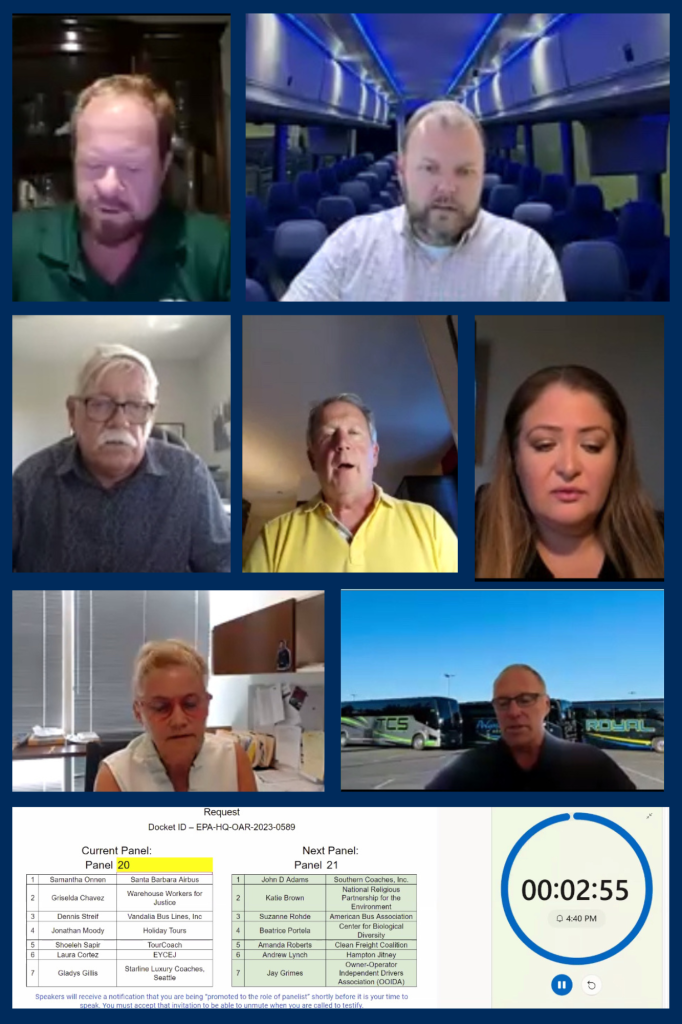ABA & Motorcoach Industry Oppose California’s Clean Fleet Regulations at EPA Hearing

The Environmental Protection Agency (EPA) recently held a marathon public hearing August 14, 2024, to gather input as to whether or not it should grant a waiver to the California Air Resources Board (CARB) that would allow the state to enforce it’s Advanced Clean Fleets (ACF) regulations (as well as CARB-aligned opt-in states). The CARB ACF rule took effect on Jan. 1 but has not been enforced because the state must obtain a waiver from the EPA before moving forward with stricter regulations.

In brief, the ACF regulations require heavy-duty vehicle fleets with $50 million in annual revenue or 50 or more vehicles, to start phasing out diesel engine vehicles and replacing them with new ZEVs as of MY 2024, and reach a 100% ZEV fleet transition by 2042. If this waiver is granted, it is likely other states who are aligned with California’s emissions regulations will also adopt it, thereby significantly impacting the motorcoach industry at a national level with a patchwork of fleet requirements.
ABA and many of its motorcoach members, along with representatives from the trucking industry and others, raised substantial concerns about the ACF regulations. The key point emphasized by ABA and its members was the inadequate and arbitrary nature of CARB’s decision-making process in formulating the ACF regulations, particularly in regards the private motorcoach sector. Industry speakers underscored the challenges posed by the rule and the current limitations of ZEV technology and infrastructure for motorcoaches. Unlike trucks, which were the primary focus of CARB’s research, motorcoaches require more advanced and reliable ZEV technology, which is not yet fully developed or widely available.
A key talking point highlighted by ABA was that CARB did not provide a clear justification for including motorcoaches under the ACF regulations. The data and research CARB used to support its rule and echoed throughout the testimony by numerous commenters, was focused on truck emissions, and did not consider the environmental benefits that motorcoaches provide by reducing the number of cars on the road and easing traffic congestion.
Motorcoach representatives also pointed out that the ACF regulations fail to allow adequate time to develop necessary ZEV technology and infrastructure to meet the needs of the motorcoach industry. The rapid implementation schedule is technically infeasible, as the motorcoach industry grapples with insufficient/incompatible charging infrastructure, delays in infrastructure development efforts, and supply chain limitations.
Representatives urged EPA not to grant CARB’s waiver request for the ACF regulations, arguing that it would impose severe and unjustified burdens on the motorcoach industry nationwide. Motorcoaches provide affordable, accessible and essential transportation services to rural, disadvantaged and environmental justice communities.


